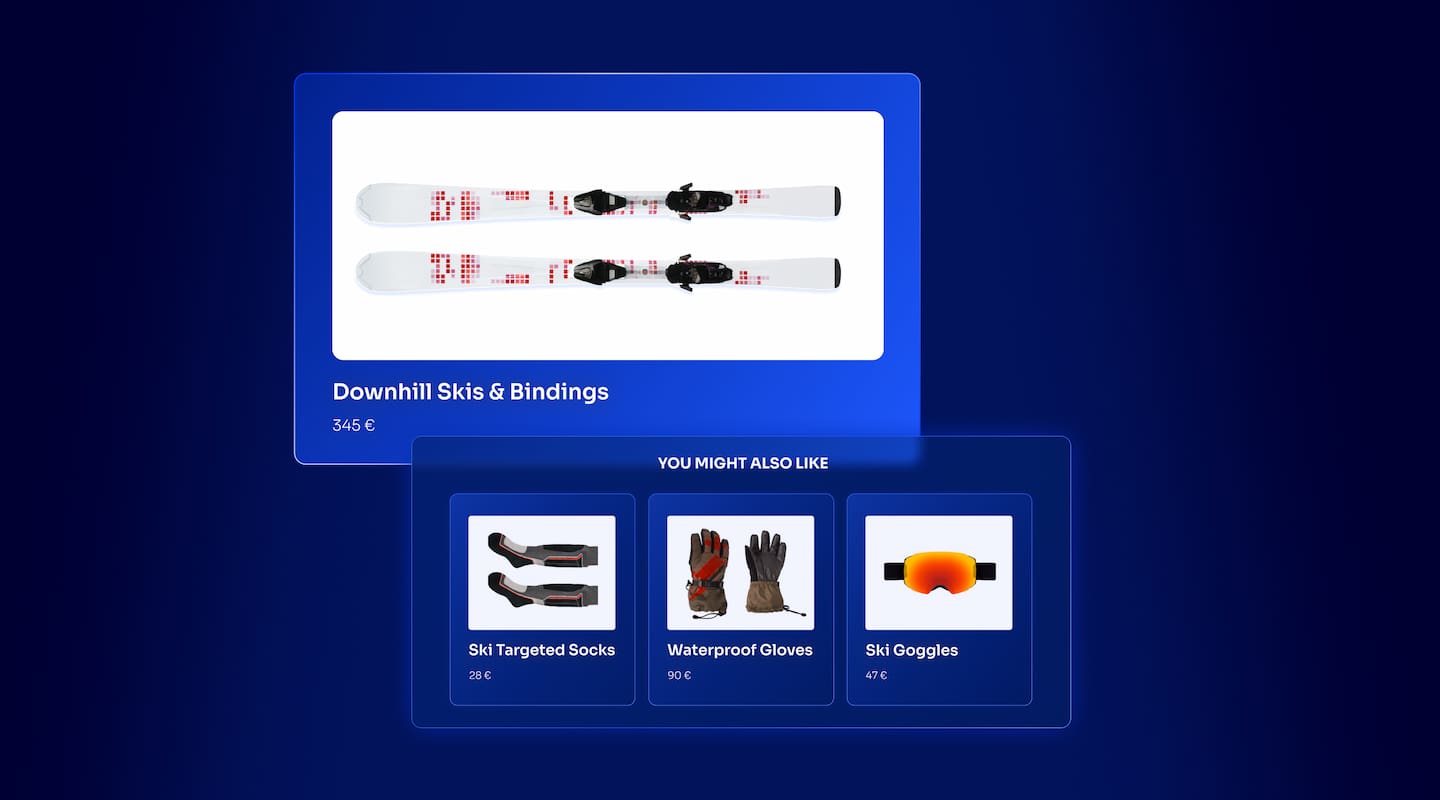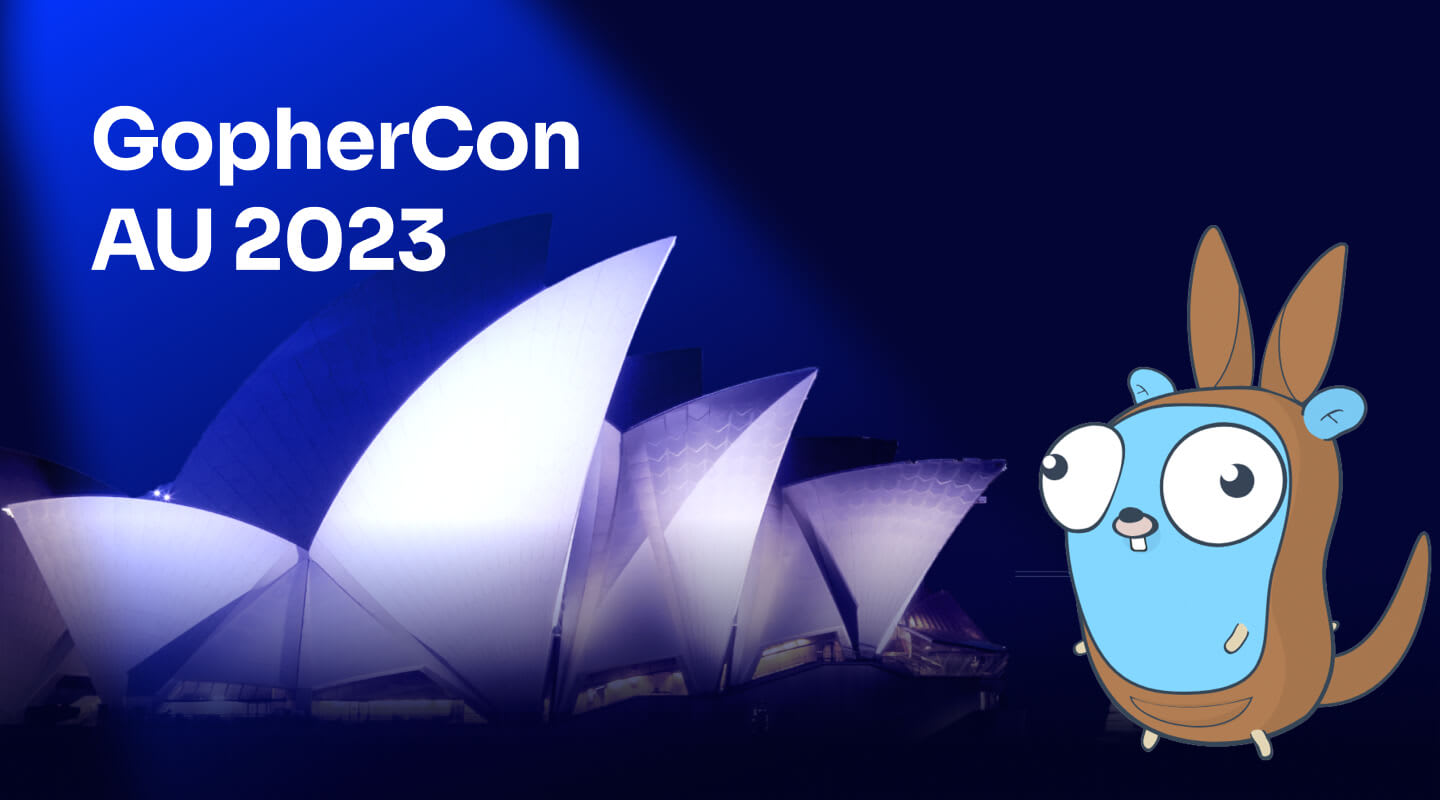Add InstantSearch and Autocomplete to your search experience in just 5 minutes
A good starting point for building a comprehensive search experience is a straightforward app template. When crafting your application’s ...
Senior Product Manager


A good starting point for building a comprehensive search experience is a straightforward app template. When crafting your application’s ...
Senior Product Manager

The inviting ecommerce website template that balances bright colors with plenty of white space. The stylized fonts for the headers ...
Search and Discovery writer

Imagine an online shopping experience designed to reflect your unique consumer needs and preferences — a digital world shaped completely around ...
Senior Digital Marketing Manager, SEO

Winter is here for those in the northern hemisphere, with thoughts drifting toward cozy blankets and mulled wine. But before ...
Sr. Developer Relations Engineer

What if there were a way to persuade shoppers who find your ecommerce site, ultimately making it to a product ...
Senior Digital Marketing Manager, SEO

This year a bunch of our engineers from our Sydney office attended GopherCon AU at University of Technology, Sydney, in ...
David Howden &
James Kozianski

Second only to personalization, conversational commerce has been a hot topic of conversation (pun intended) amongst retailers for the better ...
Principal, Klein4Retail

Algolia’s Recommend complements site search and discovery. As customers browse or search your site, dynamic recommendations encourage customers to ...
Frontend Engineer

Winter is coming, along with a bunch of houseguests. You want to replace your battered old sofa — after all, the ...
Search and Discovery writer

Search is a very complex problem Search is a complex problem that is hard to customize to a particular use ...
Co-founder & former CTO at Algolia

2%. That’s the average conversion rate for an online store. Unless you’re performing at Amazon’s promoted products ...
Senior Digital Marketing Manager, SEO

What’s a vector database? And how different is it than a regular-old traditional relational database? If you’re ...
Search and Discovery writer

How do you measure the success of a new feature? How do you test the impact? There are different ways ...
Senior Software Engineer

Algolia's advanced search capabilities pair seamlessly with iOS or Android Apps when using FlutterFlow. App development and search design ...
Sr. Developer Relations Engineer

In the midst of the Black Friday shopping frenzy, Algolia soared to new heights, setting new records and delivering an ...
Chief Executive Officer and Board Member at Algolia

When was your last online shopping trip, and how did it go? For consumers, it’s becoming arguably tougher to ...
Senior Digital Marketing Manager, SEO

Have you put your blood, sweat, and tears into perfecting your online store, only to see your conversion rates stuck ...
Senior Digital Marketing Manager, SEO

“Hello, how can I help you today?” This has to be the most tired, but nevertheless tried-and-true ...
Search and Discovery writer
Personalization is set to be the key to marketing success over the coming years. Advances in technology are driving more human experiences in the consumer web space, and with a surge in digital behaviors post-pandemic, it’s vital that organizations adapt to the growing trend for personalized interactions.
Content recommendation is one branch of the personalization family tree. At its simplest, general recommendations can be offered to users based on the popularity of content. At a more complex level, AI-powered content recommendation engines can be trained against product catalogs and customer/consumer/user data to provide more personal recommendations.
A content recommendation engine is a software solution which leverages artificial intelligence and machine learning technology to analyze data, in order to provide more personalized user experiences on a website or app.
Advanced engines are no longer under the auspices of “big tech” companies, like Google, Amazon, Netflix or other market leaders. Now, third-party recommendation solutions enable businesses to make full use of their site’s data, providing personalized content or suggestions which achieve higher retention, consumption, or conversion.
Content recommendation systems in media provide personalized content for users and subscribers based on consumer data and what’s trending. Personalized recommendations can be applied to video and music streaming sites, publishers, social media networks, and other media and news organizations to create relevant experiences that engage users and increase time spent on a site or app.
An in-store bookshop will make the point of employing staff who are sufficiently educated in literature or broadly well-read. On this basis, a sales assistant can make recommendations based on a customer’s book preferences, or point a customer standing in the “fiction” aisle to similar, more popular, and even more relevant content offerings.
Online, algorithms replace the role of a knowledgeable sales assistant, providing real-time recommendations based on consumer data, creating a personalized experience for the consumer.
A study in the “Four Fundamental Shifts in Media & Advertising During 2020”, undertaken by DoubleVerify, found that content consumption is soaring, with 47% of consumers spending more time reading online news and an equal percentage increasing their use of video streaming services.
The surge in content consumption presents an opportunity for digital media businesses to leverage the power of content recommendation algorithms and engines which drive user engagement and loyalty in a crowded marketplace.
Recommendations work via algorithms, typically AI-driven, which leverage user data to optimize and personalize content suggestions. The suggestions will be based on cookie data collection and metrics such as age, sex, and other demographic information, along with past viewership and search history.
Recommendation engines’ algorithms will operate on various models, providing:
The benefits of content recommendation in media are plentiful. Here are just a few:
Personalized recommendations can be the difference between a consumer engaging for two minutes or 45. Customization and personalization is embedded into the product offerings of all leading technology companies today, so having these features is necessary to compete in the modern marketplace.
With advanced content recommendation engines, a business ensures that a consumer’s time spent on their product is meaningful and optimized, delighting them and helping to build a loyal reader or viewer.
For online news sites, whose main source of revenue comes from advertising or subscriptions, consumer engagement creates a stickier, higher-value site. This helps fuel the advertising business model, and additional recommended content, after X free pieces help drive greater subscription adoption.
To realize the power of personalization, you don’t have to look far. Content recommendations are now “the norm” on media properties and platforms and, as outlined in a Twilio Segment Report, provide a key indicator of brand success. In 2021, 60% of consumers say they will likely become repeat buyers after a personalized site experience, up from 44% in 2017.
However, less than a quarter of businesses have adopted such solutions, meaning there is a real gap between consumer expectations of personalization and the user experience offered by most businesses.
Third-party content recommendation engines, such as Algolia Recommend, provide a solution for businesses who want to leverage the power of an advanced recommendation engine that would put them on par with the likes of major tech leaders.
With Algolia Recommend, developers can use a simple API to build AI-structured recommendations on a media site or app using as little as six lines of code. Closing the gap between what a consumer expects and how a site performs is crucial for businesses to retain users, build brand loyalty, and drive revenue. In a saturated media market, it’s time to get personal – and fast.
If you’re looking to engage consumers with more personalized content, get in touch with the Algolia team or request a free demo.
Senior Digital Marketing Manager, SEO
Powered by Algolia Recommend